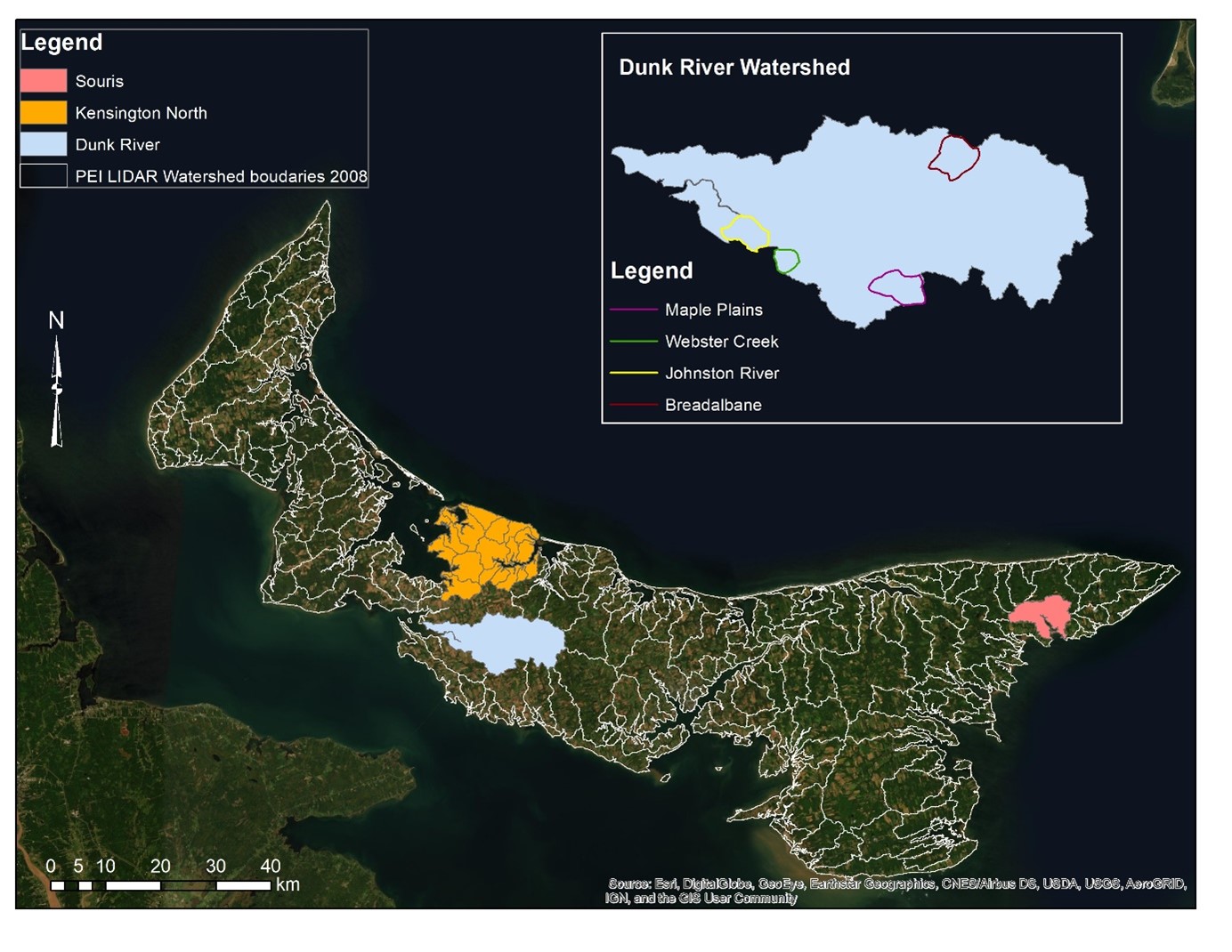Understanding and Assessing Impacts
Varying or uncertain soil moisture levels in the growing season under a changing climate has been considered as one of the factors that contribute to the steady declining yield in Prince Edward Island (PEI). In an effort to find ways of dealing with drier conditions caused by climate change, several potato growers have adopted supplemental irrigation on a portion of their crop with varied results. However, with climate change, precipitation during the growing season is less frequent with higher intensity and unpredictable patterns. Irrigation has allowed growers to withstand periods of drought at critical stages of the crop growth while still relying on natural rainfall to provide most of the crops water requirements. The varied yield responses to supplemental irrigation implies that current irrigations practices may cause over-irrigation or under irrigation rather than providing optimal watering to dissolve fertilizers and favoring the plant growth. Optimising soil moisture for crop growth involves matching the supply of water to crop water demand in time and space. In this humid region, optimal water supplies should correspond to precipitation supplemented by irrigation. The uncertainty with precipitation can cause over- or under-irrigation. Additionally, irrigation can play an important role in applied fertilizer efficiency. During drought periods, fertilizer cannot dissolve without water and therefore is not accessible to the plants, potentially causing large amounts of leaching to the ground and surface. Overall, this research aims at creating agroecosystems that are more resilient to the impacts of climate change.
